About Us
Oversight Board
The FESC Oversight Board guides FESC policy and activities, and ensures that FESC activities meet legislative requirements. The Oversight Board is comprised of all of the Vice Presidents for Research or equivalent administrators at each of the State University System institutions.
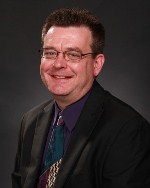 David P. Norton, Ph.D.
David P. Norton, Ph.D.
Oversight Board Chair and Vice President for Research, University of Florida.
David P. Norton, Ph.D., became vice president for research at the University of Florida in January 2012. He had served as associate dean for research in the UF College of Engineering since 2009. He is also a professor in the Department of Materials Science and Engineering.
Dr. Norton came to UF in 2000 after 11 years at Oak Ridge National Laboratory. His research interests primarily focus on electronic, photonic and magnetic thin film materials. He has published more than 300 articles in refereed journals and books, presented numerous invited papers and lectures at national and international conferences, and organized conferences and workshops in the areas of electronic oxides and laser processing. He is a Fellow of the American Vacuum Society, the American Physical Society and the American Association for the Advancement of Science, and a member of the Materials Research Society and the Electrochemical Society.
Dr. Norton conducted his undergraduate and graduate studies within the Department of Electrical and Computer Engineering at Louisiana State University, receiving his doctorate in 1989.
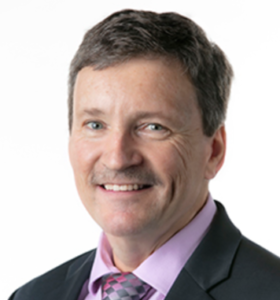 Dr. Flynn oversees research administration in the Division of Research at Florida Atlantic University, including the Office of Sponsored Programs, Research Integrity, Research Accounting, Technology Development, Veterinary Services, Research Communications and the Florida Atlantic University Research Corporation. The division works to expand and support the University’s academic and research programs, promoting research, scholarship, creativity and collaboration with faculty and students.
Dr. Flynn oversees research administration in the Division of Research at Florida Atlantic University, including the Office of Sponsored Programs, Research Integrity, Research Accounting, Technology Development, Veterinary Services, Research Communications and the Florida Atlantic University Research Corporation. The division works to expand and support the University’s academic and research programs, promoting research, scholarship, creativity and collaboration with faculty and students.
Prior to joining FAU, Flynn served as Associate Dean for Research in the College of Health Sciences at the University of Delaware. In that role, he helped grow the research enterprise by 60 percent, promoted the development of invention disclosures and patent applications by faculty and developed undergraduate entrepreneurial programs and research programs. He also served as the founding Associate Dean for Research and Economic Development at The Commonwealth Medical College, a new medical school in Scranton, PA. He oversaw all research activities at the college, including sponsored programs, research compliance, interactions with industry and technology transfer.
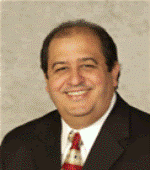 Andres Gil, Ph.D.
Andres Gil, Ph.D.
Vice President for Research, Florida International University
Dr. Andres Gil works directly with faculty and principal investigators to assure the University’s compliance with Federal and state regulatory research requirements. He also works with other senior University administrators and researchers in areas of research development, and with deans to facilitate communication between the Division of Research and the schools/colleges on matters related to research. In addition, he supports the University’s mission to provide faculty and staff with a quality grants, contracts, and research administration support program. Dr. Gil has a B.A. in Sociology/Anthropology from FIU, and a Masters degree in Social Work from Barry University. After earning a Ph.D. in Medical Sociology from the University of Miami, Dr. Gil became the Director of the South Florida Youth Development Project at the University of Miami. In 1992, Dr. Gil joined the Western Consortium for Public Health at the University of California, Berkeley where he was a research scientist. Later, he became an Assistant Professor of Human Development and Family Relations at the University of Connecticut. In 1996, he joined FIU as Assistant Professor and Associate Director for Research in the School of Social Work, later becoming Director of Research Development in the College of Health and Urban Affairs. He serves as an advisor to the Mental Health Services Administration and the National Institute of Mental Health on issues pertaining to at-risk youth. Dr. Gil has co-authored numerous articles that examine the role of culture, race, and ethnicity in current social problems. His most recent articles, “Disaster-related stress, depressive signs and symptoms, and suicidal ideation among a multi-racial/ethnic sample of adolescents: A longitudinal analysis” and “Culture Conflicts and Problem Behaviors of Latino Adolescents in Home and School Environments” appeared in Child Psychology and Psychiatry and the Journal of Community Psychology respectively. Dr. Gil also holds the rank of Professor in the School of Social Work.
Kinfe Redda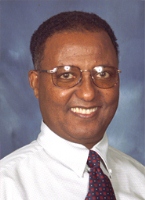 , Ph.D.
, Ph.D.
Professor and Vice President for Research, Florida A&M University
Dr. Redda was appointed interim Vice President, Division of Research, in May of 2010. Redda began employment at FAMU on January 1, 1985 as an associate professor of medicinal chemistry in the COPPS. During his tenure at FAMU, Redda has generated more than $30.1 million from research and training grant awards.
A prolific grantsman, Redda graduated from the faculty of pharmacy, University of Albert (Canada), with a Ph.D. degree in Medicinal Chemistry in 1978. He completed a two-year postdoctoral research fellowship in synthetic medicinal chemistry a Dalhousie University, Canada. He served as an assistant professor of medicinal chemistry at the College of Pharmacy, University of Puerto Rico in San Juan from 1980 to 1984.
In 1998, former FAMU President Frederick S. Humphries appointed Redda to serve as the director of the NIH funded Minority Biomedical Research Support (MBRS) Program at FAMU. He was promoted to a full professor level in 1989. Redda excelled in expanding and strengthening biomedical research on campus and generated millions of dollars for FAMU from NIH during his tenure as the MBRS director for 17 years. He was also the principal investigator and program director of the highly successful NASA funded and FAMU administered Space Life Sciences Training Program (SLSTP), a summer program for about 40 college students that were recruited nationally from1987-1995. The training of these high achieving students, who had passion for space life sciences, was held at the Kennedy Space Center.
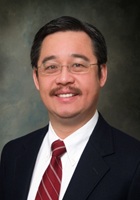 Tachung C. YIH, Ph.D.
Tachung C. YIH, Ph.D.
Associate Vice President for Research & Dean of Graduate Studies
Florida Gulf Coast University
Dr. T.C. Yih is the Associate Vice President for Research & Dean of Graduate Studies at Florida Gulf Coast University (FGCU) in Fort Myers, Florida, serving as the Chief Research Officer and authorized institutional representative. Dr. Yih joined FGCU in September of 2012. Dr. Yih has extensive experience in research in the areas of engineering design, CAD/CAE, robotics, biomechanics, and nanomedicine. He has published peer-reviewed journal papers, published conference papers, secured research grants from various funding agencies, founded and served as the co-Editor-in-Chief for the Journal of Nanomedicine sponsored by Elsevier, edited book, served as the panelist/reviewer for reviewing research grant applications, etc.
Dr. Yih is also experienced in research administration by serving as the Chief Research Officer at California State University, Long Beach, and Oakland University, Michigan, prior to joining FGCU. He also has been in charge of promoting and managing Intellectual Property, patent application, and commercialization related activities in his past and current positions. Dr. Yih is a Fellow of the American Society of Mechanical Engineers, who received his doctorate in Mechanical Engineering from the Catholic University of America, Washington, DC, in 1988.
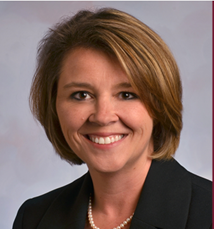 Stacey Patterson Ph.D.
Stacey Patterson Ph.D.
Vice President for Research, Florida State University
Dr. Patterson, a microbiologist, has served as the vice president for research, outreach and economic development in the University of Tennessee system and as president of the UT Research Foundation since 2017.
“Dr. Patterson’s stellar track record in research, economic development and leadership makes her an outstanding choice for Florida State University’s vice president for research,” McCullough said. “Her expertise in building broad research coalitions with both public and private partners as well as her experience in moving university research out of the lab and into the marketplace will help FSU grow its research enterprise.”
Patterson has spent the bulk of her career in multiple roles at the University of Tennessee, including director of research partnerships and as an assistant and associate vice president for research before taking on the top role in 2017.
Elizabeth Klonoff, Ph.D.
Vice President for Research and Dean of the College of Graduate Studies, University of Central Florida
Dr. Elizabeth (Liz) Klonoff is charged with advancing UCF’s reputation and impact as a 21st-century metropolitan research university by growing graduate enrollment, specifically for research-focused degrees, and elevating the scale and quality of its research.
Previously, she had a joint appointment with San Diego State University and the University of California, San Diego. Prior to that she was on faculty in the departments of psychiatry, pediatrics and obstetrics and gynecology and a clinical psychologist at Duke University Medical Center; an assistant professor in the departments of psychiatry, neurology, psychology and pediatrics at Case Western Reserve; and a professor of psychology at California State University, San Bernardino.
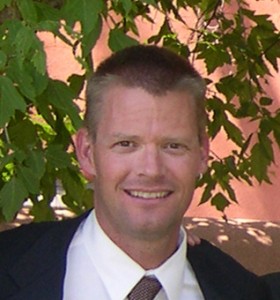 John Kantner, Ph.D.
John Kantner, Ph.D.
Assistant Vice President for Research, University of North Florida
John Kantner, Ph.D., joined the University of North Florida in August 2013 as the Assistant Vice President for Research. Prior to that, he was Vice President for Academic & Institutional Advancement at the School for Advanced Research in Santa Fe, NM, an independent center for research in the social sciences and humanities. From 1999 to 2006, Dr. Kantner was a faculty member in the Department of Anthropology & Geography at Georgia State University in Atlanta, where he achieved the rank of associate professor with tenure prior to his departure. Dr. Kantner received his doctorate from the University of California–Santa Barbara, where he studied archaeology, anthropology, geography, geochemistry, and evolutionary theory.His research focuses on the archaeology of ancient societies, with a particular interest in the processes by which complex social and political regional institutions emerged from communities of comparatively simple horticulturists. His research is explicitly comparative, and he has collaborated on projects throughout the United States, as well as in Costa Rica and Peru. In addition to several books, Dr. Kantner’s research appears in journals such as Human Nature,Journal of Anthropological Archaeology, Journal of Anthropological Research, Journal of Archaeological Research, Journal of Archaeological Science, and Historical Archaeology.
 Paul R. Sanberg, Ph.D., D.Sc.
Paul R. Sanberg, Ph.D., D.Sc.
Vice President for Research & Innovation
President, USF Research Foundation
Distinguished University Professor, University of South Florida
Dr. Paul R. Sanberg is Vice President for Research & Innovation, Distinguished University Professor. Dr. Sanberg trained at York University, the University of British Columbia, the Australian National University and Johns Hopkins University School of Medicine, among others. Before coming to USF, Dr. Sanberg held academic positions at Ohio University, the University of Cincinnati, and Brown University.
Prior to his current position, Dr. Sanberg served as Associate Dean in Morsani College of Medicine, Associate Vice President in USF Health, Senior Associate Vice President for the Office of Research & Innovation and Special Assistant to the President all at USF.
Dr. Sanberg is a member of the Board of Scientific Counselors for the National Institute of Drug Abuse at the National Institutes of Health, and has served on numerous scientific advisory boards for health-related foundations and companies. He has significant industry experience with biotech companies involved in cell therapy for degenerative disorders and biopharmaceutical development. He is the Editor-in-chief of Technology and Innovation, and serves on editorial boards for more than 30 scientific journals. Dr. Sanberg is the President of the National Academy of Inventors and has also served as president of a number of professional societies including the American Society for Neural Transplantation and Repair, the Cell Transplant Society, and the International Behavioral Neuroscience Society. He is the author of more than 550 scientific articles, including thirteen books, with over 16,000 scientific citations (Google scholar).
As an inventor on approximately 100 health-related U.S. and foreign patents, his early work was pioneering in understanding why brain cells die in neurological disorders and in drug abuse research. His recent research has focused on discovering innovative ways to repair the damaged brain, and has helped lead the team that demonstrated that bone marrow and umbilical cord blood derived stem cells can be transformed to neural cells that may be useful in stroke, spinal cord injury and ALS. Dr. Sanberg’s work has been instrumental in translating new pharmaceutical and cellular therapeutics to clinical trials for Tourette syndrome, depression, stroke, Huntington’s disease and Parkinson’s disease.
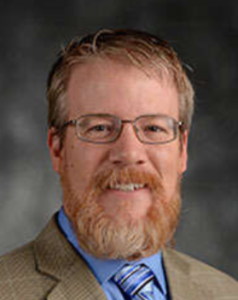 Dr. Matthew Schwarts, Ph.D., Professor, Assistant VP of Research Administration
Dr. Matthew Schwarts, Ph.D., Professor, Assistant VP of Research Administration
University of West Florida
Matthew Schwartz, who has taught undergraduate and graduate courses in Geology, Hydrology and related topics, is a Professor in the Department of Earth and Environmental Sciences as well as the Assistant Vice President of Research Administration. Schwartz’s research covers many aspects of estuarine biogeochemistry: red tide harmful algal blooms, submarine groundwater discharges into estuarine and coastal waters, and methods used to evaluate biogeochemical processes, to name three examples. Due to his current administrative assignment with UWF, Dr. Schwartz is not currently accepting new graduate research students.
Schwartz earned a Ph.D. in Marine Studies – Oceanography at the University of Delaware and held two postdoctoral fellowships before he joined UWF in 2005. Much of his research has involved local waters – Choctawhatchee Bay, Pensacola Bay and Santa Rosa Sound, among others — and the Gulf Islands National Seashore. His findings have been published in books and in journals such as Biogeosciences, Estuaries and Coasts, and Limnology and Oceanography. Among the courses that Schwartz has taught: Earth Science, Geochemistry, and Natural Disasters. He received a B.S. in Geology from the College of William and Mary















